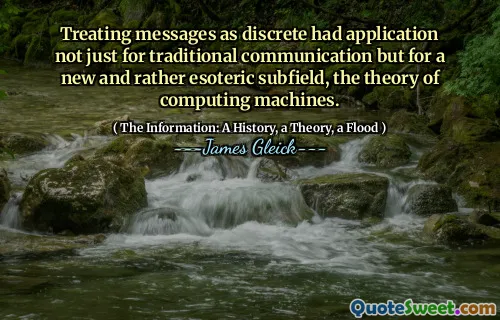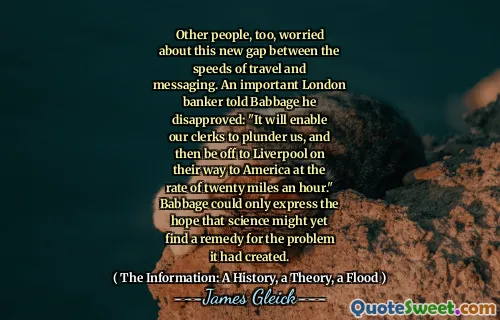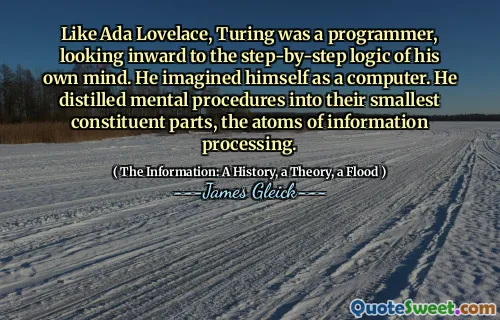"The Information: A History, a Theory, a Flood" by James Gleick explores the development of information throughout history, examining its transformation from ancient forms of communication to modern digital data. The book delves into how humans have sought to understand and convey information, tracing the evolution of language, writing, and early communication technologies. Gleick emphasizes the pivotal role information plays in shaping culture and knowledge, highlighting key figures and inventions that contributed to this process.
The narrative also addresses the scientific principles that govern information. Gleick introduces concepts from mathematics and physics, particularly focusing on Claude Shannon's groundbreaking work in information theory. This theory revolutionized our understanding of data transmission and storage, framing information in a way that transcends traditional notions of meaning. The book illustrates how this theoretical foundation has led to the digital age, characterized by the exponential growth of data and rapid technological advancements.
Furthermore, Gleick warns of the challenges posed by the overwhelming deluge of information in modern society, likening it to a flood that can inundate our ability to process and comprehend. He discusses the impact of this information overload on individuals and society, urging a more mindful approach to how we consume and engage with information. Overall, "The Information" is a thought-provoking examination of the nature of information, its historical significance, and its implications for the future.
More »
Today Birthdays
1913 -
Albert Camus
1942 -
Helen Garner
1979 -
Samin Nosrat
1975 -
Marcus Luttrell
1918 -
Billy Graham
1931 -
G. Edward Griffin
1903 -
Konrad Lorenz
1867 -
Marie Curie
1943 -
Joni Mitchell
1942 -
Tom Peters
1969 -
Bryant H. McGill
1801 -
Robert Dale Owen
1987 -
Rachele Brooke Smith
1952 -
David Petraeus
1888 -
C. V. Raman
1929 -
Eric Kandel
1967 -
David Guetta
1972 -
Jake Barton
1947 -
Bernhard Goetz
1963 -
Sam Graves
1917 -
Helen Suzman


